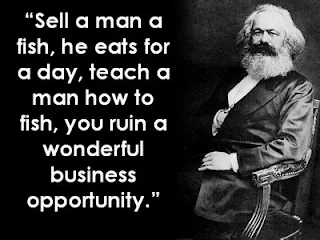That's the only way to describe my unfolding affection for the City of Manchester. It reminds me of Carl Sandburg's description of his hometown, turn of the century Chicago--"stormy, husky, brawling, city of the big shoulders."
The southern corridor I live is is home to some 70,000 students, all swarming to Manchester U and MMU daily, as if there was some giant sporting event every single day. As a result, Wilmslow/Oxford road is the busiest bus corridor in Europe. It's not uncommon to see 8-10 buses in a row at a stop, engorging or disgorging fresh-faced hipster cargo and their bags and packs and shopping. The result is a perpetual buzz during term-time on the streets and in the many excellent pubs, as well as a thriving cultural industry--music, theatre, comedy, public lectures, and on and on.
On top of that, it is a city that embraces vastly divergent cultural groups from all over the world. I live just off the famed "Curry Mile". Strolling through this precinct is like a trip to Lahore. Gaudily neoned, smelling of tandoori spices and sheesha curling from hooka-cafes, shop-windows gleaming with be-jewelled saris and gold jewelry--the subcontinental assault on the sense is almost overwhelming. there are also thriving African and Asian communities...and all of it doesn't just work, it positively thrives on the heady cocktail of sheer human cultural richness.
Historically, it is the birthplace of industrial capitalism AND its dialectic siamese-twin, communism. Engels' ran one of his father's mills here--one of the many during the 19th century when 60% of all the world's cotton came here to be processed (see my previous blog "Looking for manchester in Manchester" below), and invited his friend Karl Marx along to study the conditions of the English working classes. Result? Well, the only comprehensive challenge to treating people as units of labour, Kapital. In the wake of the GFC and the up-coming British public sector cuts, a vigorous challenge to de-humanizing effects of global industrial capitalism seems blindingly urgent again.
 |
| Recent events by the current cabinet ministers, 18 of the 23 of whom come from careers in the financial sector, call for a careful re-reading of ideas which began in Manchester |
Chetham library, where Marx worked on this tome, is but a stone's throw from Cross Street Chapel, where at the same time, Unitarian minister William Gaskell and his novelist wife Elisabeth were under-taking a brave and necessary program of social action in educating the children of the urban poor. Elisabeth's novels remain one of the most moving and searing indictments of the conditions of mill-workers' families and the inequities of the system that created so much human misery. Her 200th birthday was recently marked by a series of public lectures and media attention.
 |
| Not your ordinary minister's wife. |
And a stone's throw from that is Manchester cathedral, where last night novelist and Mancunian native Jeanette Winterson, all 5 foot nothing of her, stood tall in a church whose denomination is riven by internal squabbles over gays and women in the church, and raised the self-same moral questions this city threw into sharp relief 150 years ago, decrying the church's lack of challenge to the twin juggernauts of the war on terror and using the GFC and the financial-sector bailout to disenfranchise society's poorest and least powerful in the recent ideologically-driven budget cuts.
 |
| Gave one of the best sermons I ever heard and reminded me why I'm doing what I'm doing |
It' not just me that thinks the city is MORE ALIVE than others. Manchester is the only non-Chinese city to be allowed to hold the annual Dragon festival, the most sacred of all Chinese cultural festivals. Why? It has been judged to be the only Western city with a strong enough CHI (life force) to handle it. Impressive, no?
Dirty? Yes, but no longer due to the mills, which have been converted into shops and offices and living spaces. Crowded? Yes, filled to the brim with students, immigrants, shoppers, and tourists. Cold and wet? Yes, it's Northwest England, dummy.
But I love this feisty, blowsy, loud-mouthed, down-at-heel old tart more than I can say. It's the Mancunian way.



No comments:
Post a Comment